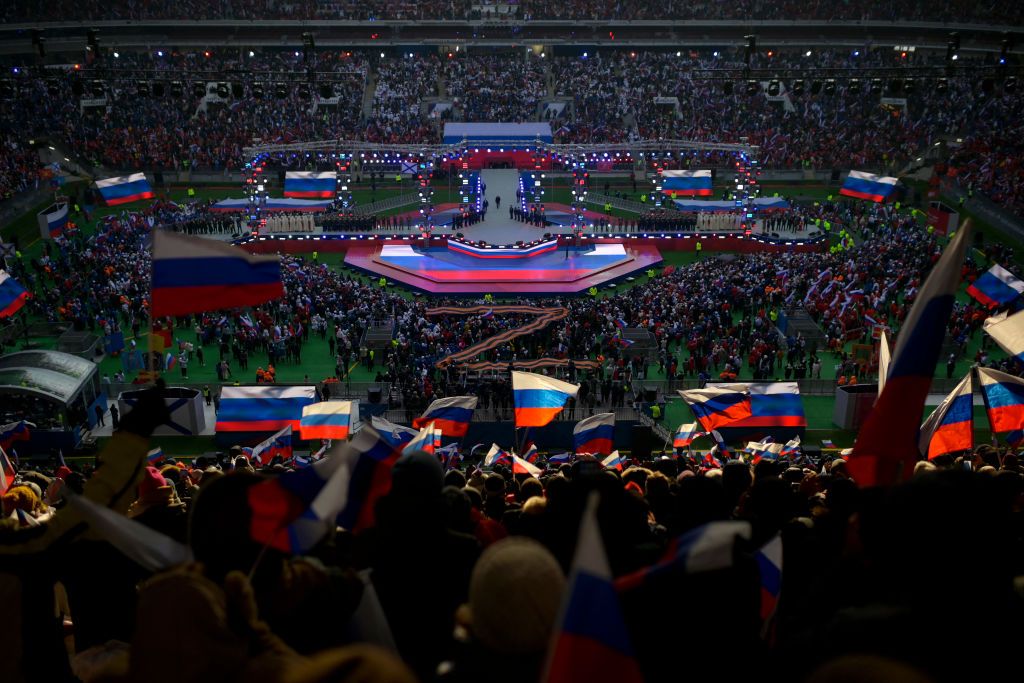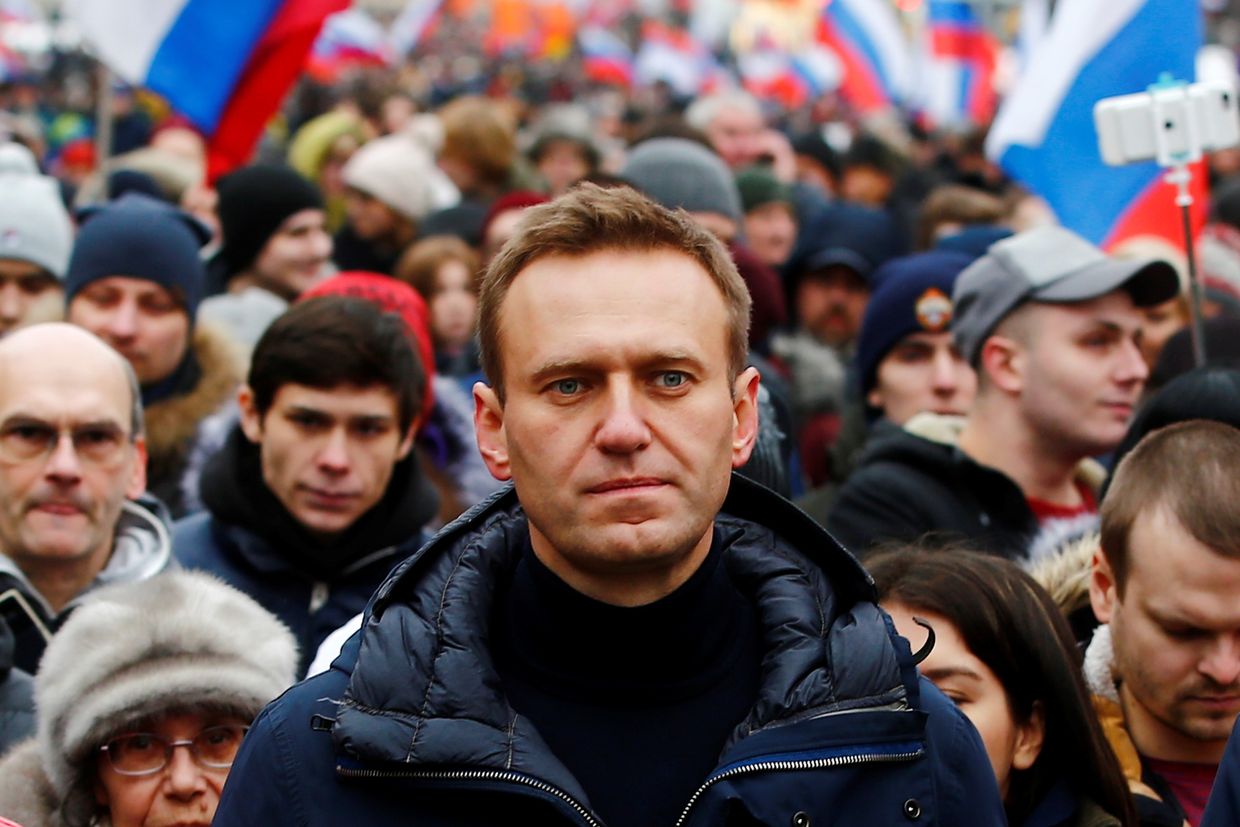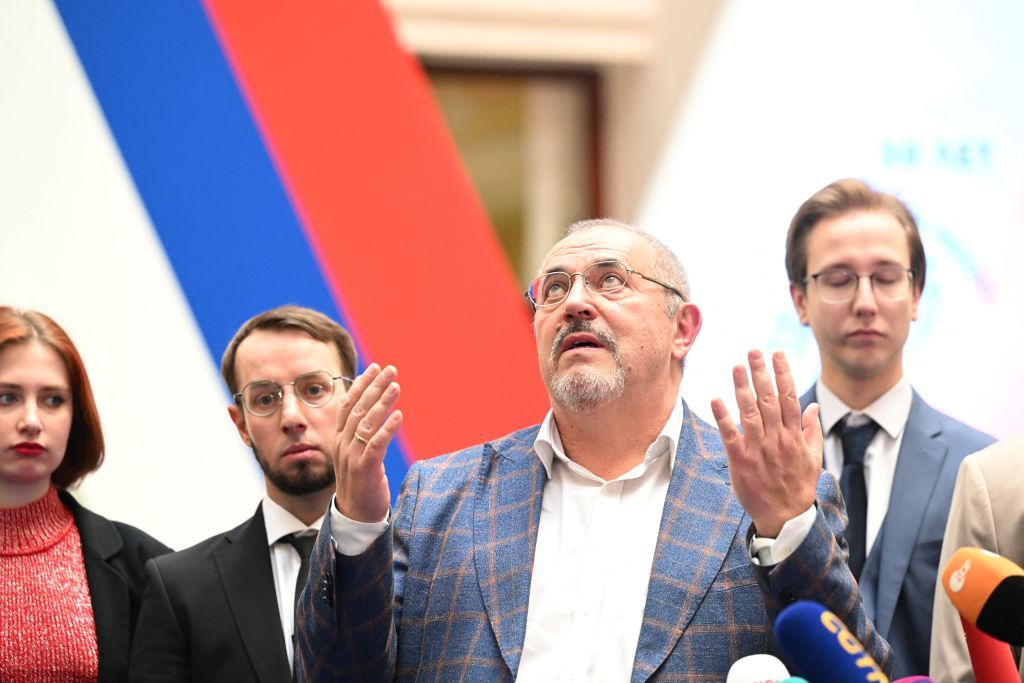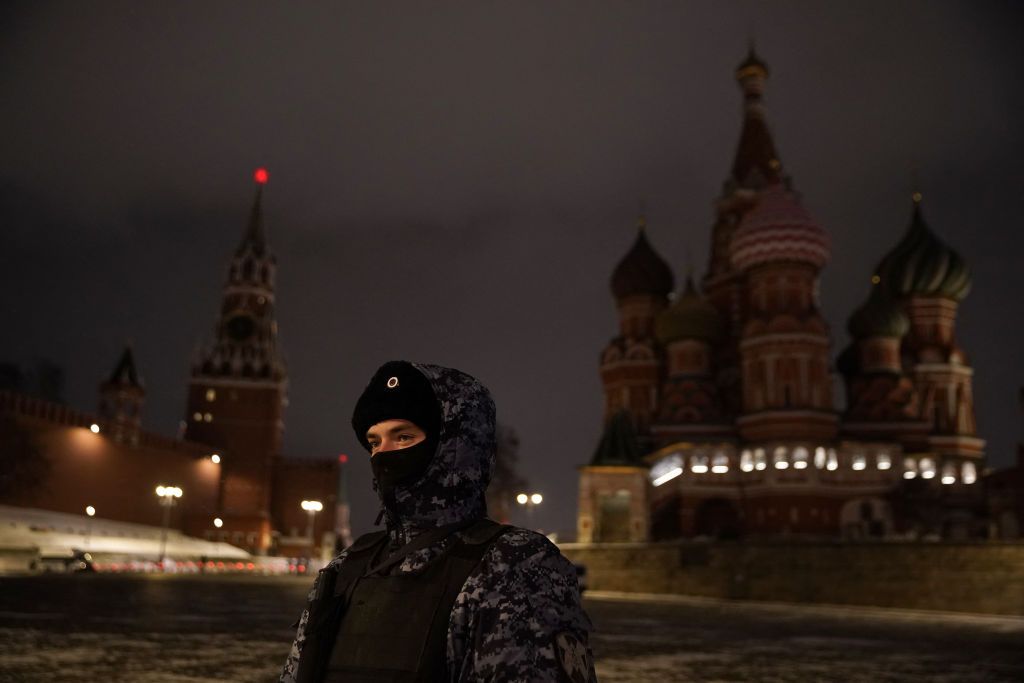Putin ‘wins’ rigged Russian election; Ukrainians in occupied territories vote at gunpoint

Russian soldiers stand by mobile polling station during early voting in Russia's presidential election in occupied Donetsk, on March 14, 2024. (Stringer/AFP via Getty Images)
Russian authorities on March 15-17 held a presidential election in two countries – Russia and the regions of Ukraine brutally occupied by the Kremlin.
The voting was neither free nor fair, with the result known in advance.
In the occupied areas, voting was held illegally at gunpoint. In Russia, the elections were no less of a farce.
The Kremlin's monopoly on television and print ensured that Putin's critics would have no say in the election.
Opposition politicians were not allowed to run, being either denied registration or killed in jail. Those permitted to run alongside Russian President Vladimir Putin could hardly be considered real competitors. In fact, they themselves hardly wanted to be such.
According to preliminary data, Putin gained his 87% of the vote, a number that came hardly as a surprise.

"The pseudo-election in Russia is neither free nor fair, the result will surprise nobody," Germany's Foreign Ministry said on X on March 17.
"Putin's rule is authoritarian, he relies on censorship, repression and violence. The 'elections' in the occupied territories of Ukraine are null and void and another breach of international law."
Voting in occupied territories
Russia's so-called 2024 presidential elections are the second such "election-style event" conducted while the Kremlin occupies large swathes of Ukraine.
Hundreds of thousands of Ukrainians were forced to take part in such "elections" – in Crimea, illegally annexed in 2014, as well as regions annexed in 2022, including parts of Kherson, Zaporizhzhia, Donetsk, and Luhansk oblasts.
Russia controls these regions only partially, and the capitals of Kherson and Zaporizhzhia oblasts are under Ukrainian control.
Sources in the occupied territories told the Kyiv Independent that Russian troops forced voters en masse to vote in the election. Specifically, they caught locals in the streets and forced them to vote outside polling stations, according to the sources.
The sources spoke on condition of anonymity due to fear of reprisals from the occupying Russian troops.
Videos and photos published on social media also show Russian troops surveilling voters at polling stations, visiting people's homes, and forcing them to vote.
The alleged number of voters that the Russian authorities have reported in Kherson, Zaporizhzhia, Donetsk, and Luhansk oblasts exceeds the regions' population.
According to the IStories investigative journalism project, the regions' population amounts to around 3 million people, including 2.5 million adults. Around half of the occupied areas' pre-war population has fled.
Yet, 4.5 million voters were registered in the regions, according to the Russian Central Election Commission.
The Central Election Commission has also decided to hide the numbers of voters at individual polling stations and election commissions in the occupied regions.

Even Ukrainian citizens who lived in the occupied territories and had been able to avoid receiving Russian passports were forced to vote in the Russian election.
Election in Russia
The Russian opposition used the election as an opportunity to protest against Putin's regime and the war in Ukraine.
Since there are no genuine opposition candidates who have criticized Putin or opposed the war, the late opposition leader Alexei Navalny's team called on voters to either vote for any candidate other than Putin or spoil the ballot.
Opposition supporters came to polling stations en masse simultaneously at 12 p.m. as part of a coordinated protest.
Lines formed at many polling stations at 12 p.m., and independent Russian media reported that some of the lines at polling stations abroad stretched for hundreds of meters.
OVD-Info, a site that monitors arrests at protests, reported that 75 people had been arrested during the election on March 17. OVD-Info also reported that one resident of Kazan had been arrested after trying to go to a polling station at 12 p.m.
Meanwhile, Russian media outlet Groza reported that in Kazan, the police had banned voters from visiting polling stations at around 12 p.m. and threatened to arrest them.
Voting was also disrupted by numerous incidents of people throwing green dye into ballot boxes, setting ballot boxes on fire, and throwing petrol bombs on March 15-17.
Voting fraud
Evidence of vote rigging emerged even before the votes were counted.
On March 15, all 136 polling stations in the town of Stary Oskol, Belgorod Oblast, claimed that the turnout at each station was identical and amounted to 47%, Russian independent publication Mediazona reported.
The Russian authorities have also installed many tools that make vote rigging easier.
Specifically, for the first time in Russia's modern history, they extended a presidential election for three days, making it harder for the few election observers to monitor voting.
Few independent observers were permitted to take part in the elections, and some of them were removed from polling stations.
The Russian authorities have also promoted early voting and voting at home, which are almost impossible to control.
Another tool used for vote rigging is electronic voting, which was used in 29 regions – for the first time on such a scale.
Over the past elections, independent observers published overwhelming evidence that electronic voting was heavily rigged.

In contrast with the traditional voting system, the results of electronic voting are virtually impossible to verify or recount. Independent observers said before that they had been prevented from accessing the e-voting results by the Federal Security Service, Russia's main intelligence agency and the successor of the Soviet KGB.
Apart from electronic voting, watchdogs have also published numerous reports and videos containing evidence of traditional vote rigging in recent elections.
The amount of vote rigging has gradually increased in Russia since 2000, according to Russian electoral statistician Sergei Shpilkin and Alexander Kireyev, a Russian-born election expert based in the U.S.
Based on an analysis of mathematical data, Shpilkin estimated vote rigging in the 2018 presidential election at 8.6 million votes.
A group of independent election observers cited by Russian independent media outlet Meduza has analyzed video footage from cameras installed at polling stations in the 2018 election.
They found massive evidence of voting fraud and concluded that votes were rigged at polling stations representing more than 25% of the voters.
Meanwhile, Kireyev said that the 2020 vote on constitutional amendments was the most falsified one in Russia's modern history. Based on a mathematical analysis of official data, he estimated the number of rigged votes to be 20 million.
Russia's 2021 parliamentary election was not far behind. According to Shpilkin, around 14 million votes were rigged.
Eliminating competitors
Apart from rigging votes, Putin has ensured that he has no genuine competitors in the election.
Russia's Central Election Commission handpicked lackluster and unpopular candidates who were convenient for Putin.
The election commission also bans candidates who have even a remote chance of competing with Putin.
On Feb. 8, the Central Election Commission rejected Boris Nadezhdin, the only anti-war candidate. The commission claimed that more than 15% of the signatures that he collected were invalid.

According to Putin's critics, the real reason for the rejection is that Nadezhdin mobilized the anti-war and anti-Kremlin opposition, and lines formed all over Russia and abroad to support his candidacy.
Another potential competitor, Alexei Navalny, was Russia's main opposition leader before he died in jail on Feb. 16.
He was sentenced in several fabricated criminal cases and banned from running in elections.
Independent experts and Western politicians say that Putin is personally responsible for Navalny's death. The only unresolved question is whether Navalny was killed intentionally or died due to harsh conditions, torture, and lack of medical treatment.
Many other critics and opponents of Putin have been exiled, jailed, or killed.
Unsurprisingly victorious
Putin won with 87.34% of the vote, while Nikolai Kharitonov from the Communist Party was the runner-up with 4.11%, according to data published by Russia's Central Election Commission after 50% of the ballots had been counted.
Vladislav Davankov from the New People, a Kremlin-friendly new political project, received 4%, and Leonid Slutsky from LDPR, a hardline nationalist party, got 3.11%.
Western, Ukrainian and Russian opposition observers lambasted the results of the election.
"The polls have closed in Russia, following the illegal holding of elections on Ukrainian territory, a lack of choice for voters and no independent OSCE monitoring," U.K. Foreign Secretary David Cameron said on X.
Navalny's widow, Yulia Navalnaya, called on the West not to recognize the results of the election in a March 13 op-ed for the Washington Post.
"Why do democratic countries continue to recognize his criminal authority as legitimate?" she wrote. "Why do fairly elected world leaders put themselves on the same level as a criminal who has for decades falsified elections, killed, imprisoned, or forced out of the country all his critics, and now has unleashed a bloody war in Europe by attacking Ukraine?"
Ukrainian President Volodymyr Zelensky said on March 17 that "this imitation of 'elections' has no legitimacy and cannot have any."
"(Putin) should end up in The Hague. This is exactly what we must ensure, everyone in the world who values life and decency."















